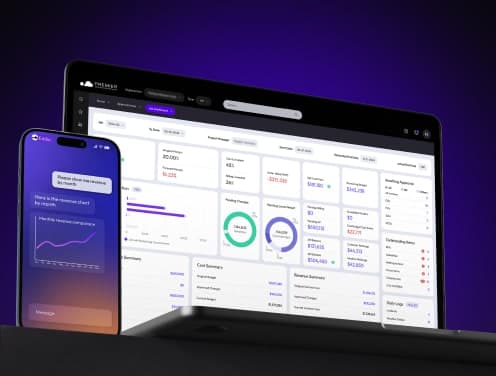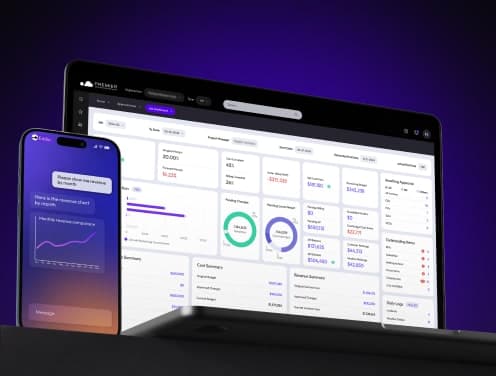
Breaking Down the Cost of Construction Software - What You’re Really Paying For
In an era where technology drives efficiency, understanding the financial implications of construction software is crucial for any contractor or builder. The investment often goes beyond what meets the eye, with many hidden costs lurking beneath the surface. For construction firms, the challenge lies in discerning the upfront costs from the long-term value they can derive from these digital tools.
As you delve into the world of construction software, it’s essential to recognize the varying payment models available, including upfront costs, subscription fees, and perhaps unexpected expenses that can arise. Each software package may come with recurring fees and hidden charges that impact the overall budget, making it imperative to gain a clear view of the financial landscape before making a choice.
This article will break down these costs into manageable categories, shedding light on implementation and training expenses, ongoing support, and even data security protocols. By understanding what you’re really paying for, you will be better equipped to make informed decisions that can propel your business towards growth and efficiency.
Upfront Costs vs. Long-Term Value
Construction software costs can be a significant consideration for construction companies. While perpetual licensing involves hefty upfront fees and potential hardware costs, it incurs ongoing maintenance fees for updates. In contrast, a subscription-based model offers flexibility, allowing fees to be structured monthly or annually. Both models demand attention to hidden expenses, such as increased storage or additional features like mobile app access. Yet, the long-term value of such software lies in enhanced project management and collaboration, boosting efficiency and cost savings.
Initial Investment
The initial investment in construction management software can vary widely. Costs for solutions like Procore range from $35,000 to $200,000, influenced by factors like complexity and desired features. Subscription models offer varied pricing, typically between $223 and $1,963 monthly. Development costs are ongoing, covering updates and security patches essential for maintaining competitiveness. Manual integration can add expenses for staffing or third-party contractors. Scalability should also be considered to handle increased project volume and user numbers, saving potential transition costs.
Long-Term Value
Investing in construction management software can transform operational efficiency and profitability, becoming a strategic asset for construction businesses. Software vendors committed to research and development ensure their tools evolve with industry trends, maintaining relevance and power. Custom solutions support specific operational needs, leading to enhanced efficiency and productivity. Key features like real-time communication tools and robust reporting improve decision-making and resource management. Cloud-based estimating software provides convenient, real-time access to accurate estimates, boosting client trust and satisfaction.
Subscription Fees and Payment Models
Construction project management software predominantly uses a subscription pricing model. This model requires users to pay recurring fees, either monthly or annually, based on the plan and features selected. Entry-level plans range from $21 to $88 per month and are suitable for smaller projects with basic needs. Mid-tier options offer more comprehensive solutions and are priced between $88 and $249. For large-scale enterprises, subscriptions start at $249, featuring advanced functionalities, extensive integrations, and premium support. Vendors may offer custom pricing to cater to specific business needs.
Recurring Costs
The recurring costs of construction project management software are largely influenced by the complexity and scale of the projects managed. Entry-level plans begin at around $20 per month, gradually increasing to over $500 for more advanced, enterprise-level solutions. Higher-priced plans often include additional features like multi-company functionality, job costing, and business intelligence reporting. Some vendors also provide custom pricing plans tailored to the unique needs of larger companies or for specialized tasks.
Hidden Fees
Aside from the upfront subscription fees, there are often hidden costs associated with construction project management software. Maintenance might require hiring IT professionals, while free plans could incur costs for customization, integration, training, and premium support services. Moreover, growing data storage needs or adding extra features, such as mobile apps, can lead to unexpected expenses. Data migration is another hidden cost to consider, as transferring existing datasets to a new system often involves additional charges. Companies should anticipate these potential hidden fees during implementation to better manage their overall budget.
Implementation and Training Costs
Understanding the full scope of implementation and training costs is crucial for construction companies adopting new construction project management software. These costs can often extend beyond the upfront price of the software and require careful consideration to avoid unexpected expenses.
Implementation Costs
Implementation costs for construction project management software can be significant and vary with software complexity. Basic solutions may start around $35,000, while comprehensive ones can reach up to $200,000. Hidden costs, such as fees for increased storage capacity, mobile app access, and regular IT maintenance, should be considered. Data migration is also a critical factor, as it may require professional help or result in downtime if not adequately managed. Subscription models can add to these expenses, with monthly fees ranging from $223 to $1,963.
Training Costs
Training costs are vital for ensuring that staff can efficiently use new construction management tools. Evaluating the support resources from the software vendors is essential; insufficient support can lead to higher training costs. Training fees often reach $1,000 or more, although some vendors include comprehensive training at no extra cost. Effective training helps users maximize productivity and efficiency. Vendors' FAQs, video tutorials, and knowledge bases are critical resources that contribute to lowering ongoing training expenses.
Support and Maintenance Costs
Construction project management software involves various ongoing expenses that can influence a construction company's overall financial planning. Essential support and maintenance services are vital to ensure the system’s effectiveness and reliability. It's crucial for construction firms to understand these costs and service agreements prior to committing to a software solution.
Ongoing Support
Ongoing support is critical for the smooth operation of construction software. This support can be accessed through online customer support, phone assistance, and customer forums. Initial training plays a vital role in empowering team members to effectively handle complex tasks, thereby reducing future support needs. Continuous training, though potentially costly, enhances proficiency and minimizes downtime, ultimately boosting productivity across construction projects.
Software Maintenance
The annual software maintenance cost for construction management software usually falls between 15% to 20% of the development cost. Regular updates, bug fixes, and security patches are integral to maintaining the software's reliability and competitiveness. Construction businesses must budget for these ongoing maintenance expenses, which ensure the software adapts to technological advancements and regulatory changes, reinforcing its long-term utility.
Future Development and Features
Future development in construction software focuses on enhancing project management tools with advanced functionalities. Real-time reporting, document management, and automated notifications improve project oversight and accountability. Integration with calendar applications and customized features tailored to specific project needs are on the rise. These enhancements will likely increase software costs and require additional resources, but they promise to streamline construction processes and improve operational efficiency.
Security Costs
Construction management software can significantly impact a construction business's budget due to security-related expenses. When migrating data, particularly sensitive information, consulting external security experts is often necessary, increasing costs. Additionally, securing adequate document storage to comply with safety standards can create unexpected budget demands.
Regular maintenance by IT professionals is crucial to address security vulnerabilities, contributing heavily to the total cost of ownership. Furthermore, complying with data security regulations might necessitate further investments, affecting both upfront expenses and ongoing software costs.
Data Security and Compliance
Data security is paramount in cloud-based construction management software. Ensuring data control and security with providers before implementation is essential for construction firms. Integrating applications such as accounting software requires secure data transfers, increasing development complexity and cost.
Safety compliance features embedded in construction management software help track and document safety protocols, minimizing risks. Automated alerts for data breaches or safety lapses enhance proactive compliance management. Additionally, integrated analytics can track safety incident trends, promoting preventive action and ensuring legal compliance.
The Cost of Not Investing
Failing to invest in construction software can lead to preventable spreadsheet errors and inaccurate construction estimates, potentially resulting in lost contracts and reduced profitability for construction companies. Without advanced project management tools, construction businesses miss out on enhanced productivity, as traditional methods consume more time and energy for project estimates that could be streamlined with software. Additionally, not adopting cloud-based solutions may hinder effective communication with clients and subcontractors, causing delays and mismanagement of project timelines.
Ignoring the benefits of construction estimating software can negatively impact a company's professional reputation, as digital expectations from clients continue to rise. Construction firms risk falling behind in the competitive market by not embracing construction management tools, especially since the industry is moving towards digital solutions that boost operational efficiency. Investing in up-to-date software is becoming a necessity, with the construction software market projected to grow significantly.
Inefficiency and Errors
Inefficiencies can arise when switching between construction project management tools, leading to unexpected downtime and costs during data migration. Training staff thoroughly on new software is crucial to minimize errors, as limited support from software vendors can further complicate the use of construction project management software. Many platforms now offer automated notifications to help mitigate task management inefficiencies, ensuring tasks don't slip through the cracks.
Task lists and daily logs embedded in construction management software facilitate better organization and clarity among team members, significantly reducing miscommunication. These features improve accountability by providing a documented record of project progress and updates, thus helping to prevent discrepancies and maintain project efficiency.
Missed Opportunities for Growth
The construction management software market is expanding, with projections indicating growth from $9.73 billion in 2024 to $15.20 billion by 2029. This growth highlights a rising demand for effective construction project management tools that aid operational efficiency. Companies like Procore demonstrate how efficient software can enable teams to manage 48% more construction volume per person, indicating significant potential for productivity gains.
While initial software costs can range from $35,000 to $200,000, reflecting significant variation based on complexity and features, subscription models can also vary widely, from $223 to $1,963 monthly. Despite these upfront costs, investing in construction project management software can greatly enhance project capabilities, allowing teams to better collect, analyze, and communicate crucial project information, providing a strategic advantage in a growing market.
Conclusion and Recommendations
In conclusion, the cost of construction software varies widely, with prices ranging from $60 to $250 per month per estimator. This variation is largely due to the range of features offered, from basic unlimited projects and daily logs to advanced capabilities like job costing and business intelligence reporting. For construction companies, it is crucial to conduct a thorough cost-benefit analysis before investing in new software to ensure a solid return on investment.
Recommendations for construction firms include carefully assessing their specific needs and the potential benefits of advanced features. Consider the integration capabilities with existing project management and accounting tools, as this can impact both the upfront cost and the software's value. With the construction management software market projected to grow from $9.73 billion in 2024 to $15.20 billion by 2029, investing in a cloud-based solution that aligns with your business's growth trajectory could be an affordable option if correctly matched to your company's requirements. Finally, prioritize customer satisfaction by selecting solutions that offer flexibility for additional users and customer portals, ensuring scalable support as your operations expand.





















